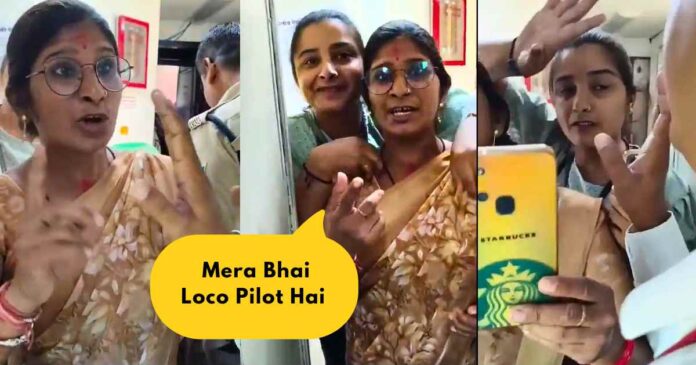
In the rhythmic clatter of Indian Railways, where millions board daily dreams and deadlines, one short video has derailed the calm. Picture this: a plush 1st AC coach, meant for quiet luxury, erupts into a family feud over a missing ticket. A mother and daughter, caught red-handed, don’t just plead—they pull out the big guns: family perks, harassment claims, and even a dash of caste controversy. Shared on X (formerly Twitter), the clip has racked up thousands of views, igniting a firestorm of debates on entitlement, rules, and who really owns the rails.
This isn’t just another “gotcha” moment. It’s a mirror to the messy underbelly of public transport in India—a system that’s the lifeline for the masses but often feels like a free-for-all for the connected. Let’s break down the video that’s got everyone from daily commuters to railway buffs buzzing.
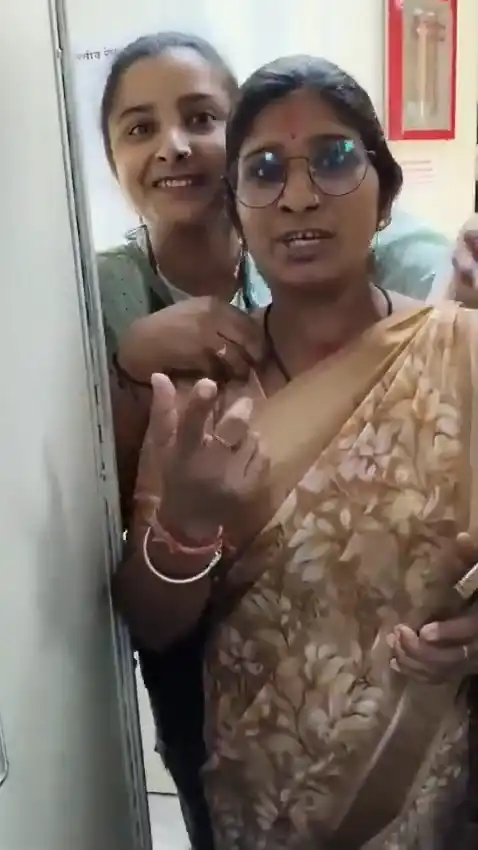
The Scene: From Calm Check to Chaos in Coach
The video, clocking in at under a minute, unfolds like a Bollywood subplot gone wrong. We’re inside the hushed confines of a 1st AC compartment—think crisp berths, dim lights, and the faint hum of wheels on tracks. The Travelling Ticket Examiner (TTE), uniformed and unflappable, approaches a seated mother and her daughter. His phone is out, recording what should be a routine check.
The mother, looking every bit the reluctant traveler in casual wear, admits the obvious: no ticket. “Mai bas washroom…” she trails off, implying she hopped on just for a quick bathroom break with her daughter in tow. It’s a flimsy excuse, but one we’ve all heard variations of— the “accidental boarder” who overstays the welcome.
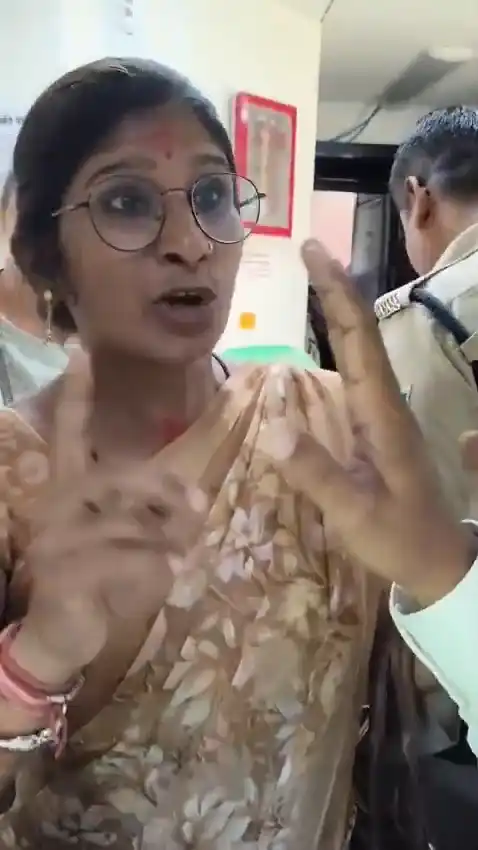
Enter the daughter, stepping up like a plot twist. With a mix of defiance and desperation, she drops the bomb: “My brother is a loco pilot.” In her mind, apparently, that sibling superpower grants VIP access to premium seats, no fare required. The TTE, bless his stoic soul, doesn’t blink. He calmly insists on a valid ticket, his tone steady as the train’s gauge.
But here’s where it veers off the rails. The mother, sensing the net tightening, shifts gears. She accuses the TTE of “harassing” her by filming the exchange— a classic deflection in these viral showdowns. “You’re disturbing a woman,” she snaps, her voice rising like steam from an old locomotive. The daughter chimes in, backing the victim narrative, while the mother demands the TTE’s name. And then, the escalation: a pointed jab at his “caste,” turning a simple fare foul into a full-blown discrimination drama.
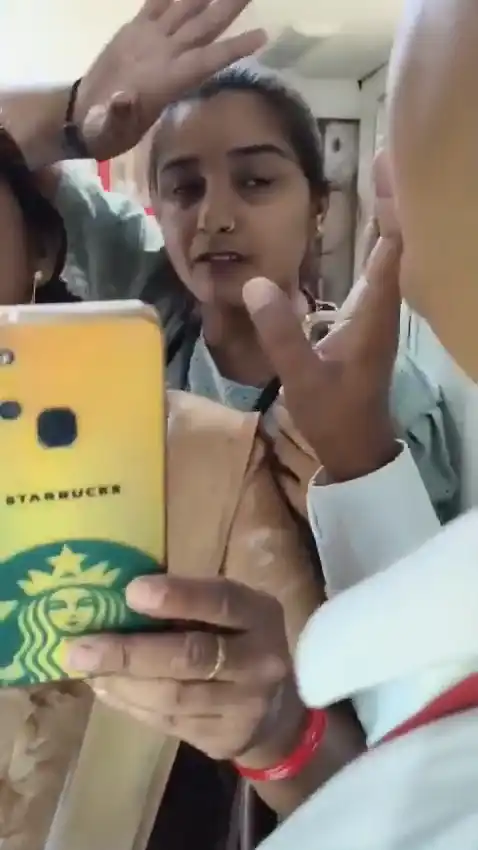
Visually, it’s tense but contained. The TTE stands firm, phone aloft like a shield, his face a mask of professional patience. The women gesture animatedly— the mother’s hands wave in frustration, the daughter’s eyes dart between her mom and the examiner. No slaps or shoves here (unlike some infamous clips), but the emotional barbs land hard. The clip ends abruptly, leaving viewers hanging: Did they deboard? Pay up? Or pull more strings?
Peeling Back the Layers: Entitlement on the Express Line
At its core, this video isn’t about one family’s folly—it’s a spotlight on a systemic sore spot. Indian Railways, the world’s fourth-largest network, hauls 23 million passengers daily. Yet, ticketless travel remains rampant, from overcrowded sleepers to sneaky AC upgrades. What makes this clip sting? The blatant entitlement. Claiming a loco pilot brother’s perks to freeload in 1st AC (fares starting at ₹1,000+ for short hauls) reeks of the “chalta hai” attitude that plagues public services.
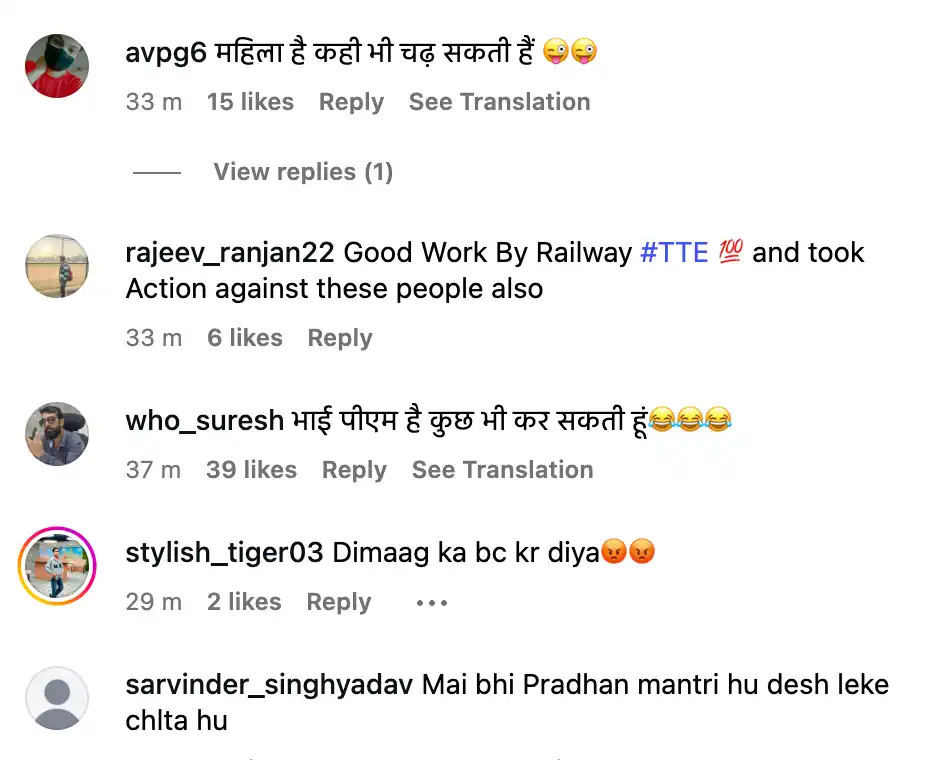
Psychologically, it’s fascinating. The women’s pivot from admission to accusation—harassment, then caste—mirrors a defense mechanism: When caught, cry foul. In a country where caste dynamics still simmer in everyday disputes, dropping that card isn’t just deflection; it’s a cultural grenade. It flips the script, making the rule-enforcer the villain. The TTE’s calm recording? Smart protocol, but to them, it’s “proof” of bias.
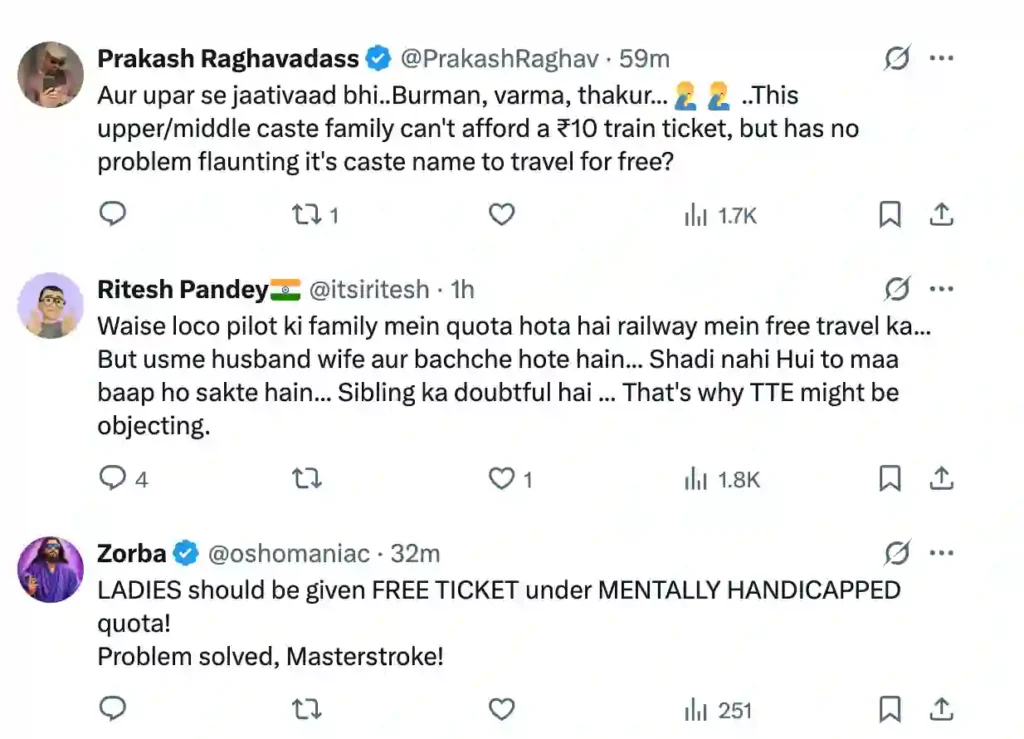
Humor creeps in too, if you’re wired that way. The “washroom” excuse feels like a sitcom line, and the loco pilot reveal? Peak Indian logic—nepotism on tracks. But beneath the memes, there’s real rage. As one X user quipped in the post’s comments, “Govt job = free pass? Wake up call for Railways.”
The Viral Ripple: From X to National Chatter
Posted on X with a scathing caption—”My brother is a loco pilot, so I’ll travel in First AC without a ticket… looks like government employees and their family members believe Indian Railways is their personal property”—the video exploded. It ties into a string of similar scandals: the Bihar teacher caught sans ticket last week, the lawyer who slapped a TTE, even the influencer stalked via Instagram by a creepy checker. Each one amplifies the echo: Rules for thee, not for me.
Public reaction? A torrent of “enough is enough.” Comments range from calls for ₹500 fines and blacklisting to dark humor about “loco family specials.” Women viewers split—some decry the misuse of harassment claims, diluting real issues; others sympathize with the TTE’s plight. Railways hasn’t commented yet, but past responses (like deboarding and police escorts) suggest action’s coming.
On a deeper level, it’s a litmus test for civic sense. With apps like UTS for on-the-go tickets and Tatkal for emergencies, why risk the drama? The video’s virality—fueled by News24 India’s Instagram repost—underscores our love for “kalesh” (fights) content. It’s entertaining, sure, but it spotlights a need for stricter audits on employee privileges and awareness drives.
Rails to Reform: What Can We Learn?
This loco pilot saga isn’t isolated; it’s symptomatic. Indian Railways loses crores annually to evaders, straining an already overburdened system. Solutions? Beef up CCTV, empower TTEs with on-spot fines, and launch campaigns shaming entitlement (à la Singapore’s no-spit fines). For families like this, a gentle reminder: Pride in a loved one’s job shouldn’t mean freeloading.
Yet, amid the outrage, there’s a silver lining. Videos like this spark conversations—on equity, empathy, and enforcement. The TTE, unnamed hero of the hour, embodies the quiet warriors keeping the rails running. Kudos to him for not derailing under pressure.
As the train chugs on, one thing’s clear: In India’s vast network of tracks, the real journey is toward better behavior. Next time you’re boarding, remember—your ticket isn’t just paper; it’s your pass to respect the ride. What’s your wildest train tale? Share in the comments—let’s keep the conversation rolling.
